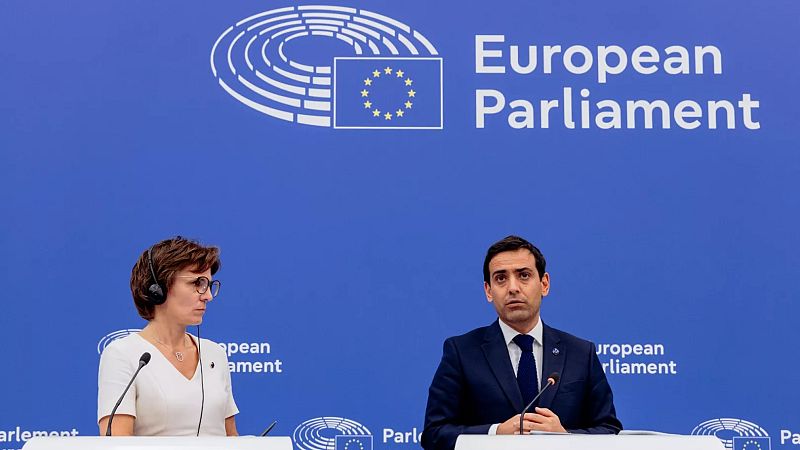
The European Commission presented on Tuesday its sixth “omnibus” simplification package since the start of Ursula von der Leyen’s mandate. This time, the target is the EU’s chemical sector, a cornerstone of European industry, according to Commission Vice-President for Industrial Strategy, Stéphane Séjourné, but one that he says is “increasingly under threat”.
The reform package, officially titled the Action Plan for the Chemical Industry, combines new support measures for Europe’s ailing producers with a set of rule changes designed to ease red tape and cut costs. The Commission claims it will save the industry over €360 million annually by simplifying how hazardous chemicals, cosmetics and fertilisers are labelled, regulated and authorised.
But not everyone is convinced the latest push to modernise EU law is entirely harmless. Green lawmakers warn the simplification could undermine years of progress on health and environmental protection, accusing the Commission of siding with big industry at the expense of consumers.
Speaking in Strasbourg, Stéphane Séjourné defended the plan as an “industrial package above all”, not merely a chemicals policy. “We’re talking about a sector that has seen its global market share nearly halved in the last 20 years,” he said, warning that Europe was risking the loss of its production base if it didn’t act swiftly. He pointed to the closure of around twenty large chemical sites in recent years, and described steam crackers - essential, high-emission chemical plants - as ageing and in need of major investment.
Séjourné said the aim was to keep these strategic assets in Europe while using the green transition to modernise them and improve competitiveness. “We fully stand by our decarbonisation strategy,” he added, “but it must also support our industrial resilience.”
The action plan promises to lower energy costs through extended state aid rules and speed up investment in green technologies like hydrogen and chemical recycling. It also outlines the creation of a Critical Chemicals Alliance to identify vulnerable supply chains and reduce Europe’s dependence on imports for key substances used in sectors like automotive, defence and healthcare.
Simpler labelling for cosmetics and fertilisers
Alongside these broader industrial goals, the Commission’s Chemicals Omnibus introduces a raft of changes to EU rules, including simpler formats for chemical labelling and lighter procedures for cosmetics and fertilising products. These changes, the Commission insists, will not compromise safety.
“This is about reducing the administrative burden, not the level of protection,” said Jessika Roswall, Commissioner for Environment and Circular Economy. “We know that Europeans care deeply about chemical safety, and we believe that strong environmental standards can go hand in hand with strong business.”
Roswall highlighted public concerns over harmful substances, particularly PFAS, also known as the “forever chemicals”, which have been found in the blood of nearly the entire Dutch population, according to recent research. The Commission said it is preparing a wide ban on PFAS in consumer goods, and plans to allow their continued use only in strategic sectors like health and defence, under strict conditions.
But the Green group in the European Parliament is warning of a dangerous shift in priorities. “Health protection is thrown overboard to increase the profits of the chemical industry,” said Greens/EFA co-president Bas Eickhout in a statement on Tuesday. He accused the Commission of weakening legislation, particularly on cosmetics, by allowing the continued use of substances previously banned due to cancer or reproductive toxicity risks.
The Greens also criticised the move to undo some of the labelling rules introduced just last year, arguing it punishes companies that already made costly investments to comply, while rewarding those that lagged behind.
While the Commission insists the reforms are part of a wider industrial strategy, the new chemicals package adds to a growing list of sector-specific “omnibus” packages adopted in recent months, covering everything from farming to defence.







